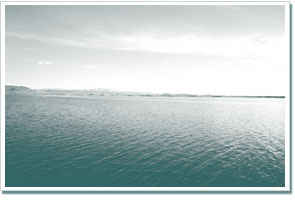
Shoshone-Paiute enjoy remotness of rez
Morgan
Winsor
Gibson
folows in footsteps of his late fatherSope says close relationship with nature helps shape culture
Thomas teaches others importance of vision, purpose
| By
Morgan Winsor Restoring fish populations along rivers and in lakes is a constant challenge for the Shoshone-Paiute tribe. In 1929 construction of the Owyhee Dam fenced off the main passages for salmon, red band trout, bull trout and rainbow trout to enter streams in southern Idaho where tribal members fish. That dam, coupled with the erection of other water barricades – like the Bull Run Dam, Wild Horse Dam and Hell’s Canyon Dam — has made it impossible for Shoshone-Paiute tribal members to successfully fish from particular streams and lakes. For the tribe, fishing is a tradition passed on through generations. Thanks to an annual $1 million grant from the Bonneville Power Administration, fishing woes on the reservation aren’t as extreme as they used to be. The grant has allowed the tribe to hire Fisheries Biologist Vincent Pero, who for five years has diligently worked to bump up the number the fish in reservation waters. Pero, who acquired a fisheries degree at the University of Idaho, said he and his team of researchers are in the midst of developing five habitat enhancement projects. He said the first is to protect streams and spawning areas by fencing off springheads that spurt from aquifers. He said springheads attract stampedes of livestock and that cattle carry viruses that can destroy genetically pure fish. Finding where genetically pure fish roam is another project Pero is tackling. Clad in waders and armed with electrified rods, Pero and his team stand knee deep in icy waters shocking fish "only long enough for them to be captured," he said. The voltage jolt momentarily paralyzes the fish, sending them belly-up to the surface. Pero then clips a dime-size piece of skin from the fish and analyzes it at a lab to determine whether the fish are genetically pure. "So far out of five streams there are only two that carry genetically pure red band fish," Pero said. "Fawn Creek and Little Sheep Creek are the only two." Pero said cross fish breeds pose a threat to pure fish in streams. He said they interfere with spawn and feeding patterns. Crossbreeds also have more aggressive behavior and are known to attack and maim, sometimes kill off the purebreds. |
Pero tries to keep the three reservoirs on the reservation stocked with rainbow trout. He manages operations on Lake Billy Shaw, a 500-acre fisherman’s paradise. But Pero is worried his duties won’t be enough to save the endangered fish. "Wild Horse Dam was constructed to capture water for the tribe to use for irrigational purposes," he said. "But the dam only captures 40 percent. The other 60 percent is collected behind Owyhee Dam." Terry Gibson, the tribe’s chairman, said the tribe currently is working to acquire more water rights to salvage endangered fish populations. "The Owyhee Dam has caused irreparable damage to our natural resources," Gibson said. "Hell’s Canyon Dam has cut off 34 percent of our fish population. We need to get our water rights back." |
||||||||
|
|||||||||
